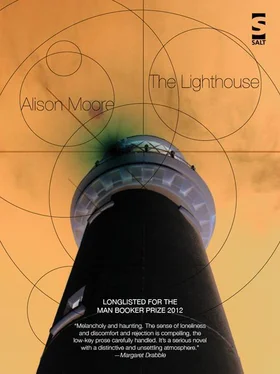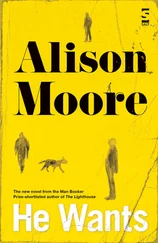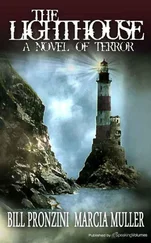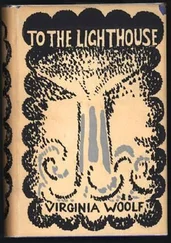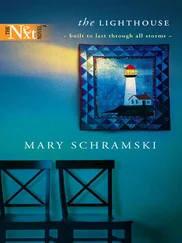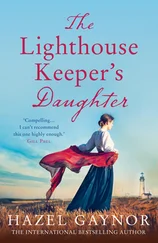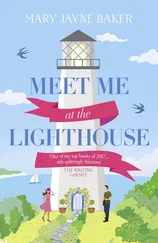He has always courted women slowly, over months, starting with coffee in cafés and walks in the park, moving on to restaurants and art galleries and museums, not that it always got even that far. With Angela it was different. She was the one to take him to bed. After that first time at her mother’s house, she came round to his place and when she arrived he took her coat and offered her a cup of tea and a scone and she rolled her eyes and said, ‘I’m not your mother.’
Occasionally, and always in bed, she would talk about this married man who had been her boyfriend. ‘He’s always under a car or taking something apart,’ she said after asking Futh whether he could look at her car, fix a headlight which wasn’t working, and discovering that he could not. ‘You’re all in your head. He’s more physical. Good with his hands.’ She always talked about him in the present tense.
Futh, coming to the end of his breakfast and glancing again at the young woman sitting at the next table, finds that she has been joined by her rather large boyfriend. Futh finishes and leaves.
He eats his hard-boiled egg in the woods, enjoying the shade. He remembers his father carefully shattering the shell of a boiled egg while he talked about the powder, the egg substitute, which he had been fed as a child. ‘It was OK,’ he said. ‘You make do.’
Futh had been anxious about spending a week with just his father, but, he had thought, how bad could a holiday be? And as it turned out, in spite of the ferry and the women in the hotel bathroom and his father saying, ‘We can do without her,’ and things like that, Futh enjoyed their holiday. Futh — taking an egg from his father and holding it in his hand for a moment to admire its perfection before bringing it to his opening mouth — did not want it to end, did not want to have to go home ever again.
In the months between the decision that he and Angela would separate and his actually moving out, Futh had been visiting the parks and art galleries and museums which the two of them had never in fact been to, keeping out of her way. He visited the aviary, saw the exhibitions, sat in the cafés, and felt very much like his adolescent self on his climbing frame in the dark, putting off the moment when he would have to climb down and go in.
In the meantime, Angela was packing his belongings into self-assembly cardboard boxes, and each time he came home he found more of them stacked up in the spare room in which he had recently been sleeping.
‘Come and keep me company,’ Gloria had said, standing on the other side of the fence in her nightie. She had not brought out the rubbish this time, she had just come out and walked over to where he was sitting on his climbing frame, and Futh wondered how easily she could see him from inside her house. He had thought himself pretty much invisible sitting there in the dark. He wondered if she had noticed him watching her.
Futh tried to decline her invitation, but she lingered, leaning over the fence, cajoling him. Futh was also alone and he’d had no supper. He imagined Gloria putting something nice on the table just for him. Agreeing then to go with her, he climbed down and clambered over the fence, following Gloria over her lawn and into her house.
He sat on a bench at her kitchen table and watched her making drinks — putting ice in two glasses, adding something, a liqueur, which made the ice crack and shift. She brought the glasses to the table and handed him one, sitting down beside him, and Futh moved along the bench, into the corner. He took a sip of his drink and turned his face away towards the open window, through which he could clearly see his climbing frame looming over the little fence, the cloud-blurred moon above it.
On the window ledge, there was a Venus flytrap, its bright red leaves wide open. Gloria, sitting down, seeing him looking at her plant, said, ‘It’s a beauty, isn’t it? Your daddy doesn’t like it but I just love it. It catches every little thing that comes by.’ Futh reached towards it, an outstretched finger poised to poke at a trap, to tickle its trigger hairs, to feel it close around him, and Gloria said, ‘Don’t do that.’ He withdrew his hand, turning back to his drink, trying a little bit more, and Gloria said, ‘It’s caught a moth.’ Futh looked. A trap had closed and there was something inside it, legs and the edges of wings poking out between the cilia. He wondered how it had managed that. He had not looked away for long. He was sorry to have missed it.
Years later, in his twenties, he would visit Japan, and he would see clingfilm-wrapped sea creatures in supermarket refrigerators slowly and uselessly moving their legs, and he would be reminded of the moth in the Venus flytrap in Gloria’s kitchen.
‘What happens now?’ he asked.
‘In a week or so,’ said Gloria, ‘the trap will open again. What’s left will blow away.’
As Futh watched the moth struggling between the plant’s tightly shut leaves, he felt a fingertip touching the back of his neck and the top of his back, underneath his T-shirt. ‘You’ve caught the sun,’ said Gloria. Futh stayed still, looking out at the darkness, feeling the slight weight of her touch on his skin, the warmth of her fingertip, and the line she had traced from the nape of his neck to the top of his spine, and then he heard her doing something on the far side of the kitchen and he realised that she was no longer touching him and probably had not been for a while.
Gloria was fetching more ice — returning to the table with the ice cubes already melting in her hand, water dripping between her fingers — and the bottle of whatever they were drinking. She encouraged Futh to finish the drink in front of him and then refreshed his glass. Sitting down again, she looked at him, cupped his face in her hands, and said, ‘I can see your daddy in you.’ From time to time, while they drank, she patted his knee or stroked his hair. When someone rang the doorbell, Futh jumped. Gloria stood and went to the front door.
Futh could not hear any voices. There was a porch with an internal door which Gloria had perhaps shut before opening the outer door. But he heard heavy footsteps going up the stairs. Gloria came back into the kitchen. ‘You shouldn’t be here,’ she said to Futh. ‘It’s past your bedtime.’ Leaving the kitchen again she said, without turning round, ‘Let yourself out,’ and she switched off the light as she went.
Futh felt a bit sick, like he did on ferries when the crazy carpet was seesawing under his feet. He stood up, holding on to the table, and then sat down again.
Some time later, he was still sitting there in the dark when he heard someone coming down the stairs, down the hallway, towards the kitchen. He expected to see Gloria coming through the doorway and was thrown when instead — smelling the pub before the light snapped on — he saw his father.
His father went to the fridge and took out a bottle of wine, and then opened the cupboard next to it and got out two glasses. Futh pressed his sunburnt back against the wall. His father, without noticing him, left the kitchen again.
Futh listened to his father’s footsteps going up the stairs. He did not move when he heard the creaking of the floorboards overhead, and then the bedsprings, nor when he heard again the floorboards and then footsteps on the stairs and in the hallway.
The kitchen light snapped on again and there was his father going to a drawer by the sink and taking out a bottle opener. And then his father swung round to face Futh at the table, and for a long moment they just looked at one another. His father broke the silence. ‘Go home,’ he said. Futh waited, and his father came a little closer and said, ‘Now.’
Futh stood up, slid along the bench and got himself to the back door. As he stepped off Gloria’s back doorstep, the kitchen light went out and he negotiated the plant pots and the bins in the dark. Climbing over the low fence into his own garden, coming down on the other side, he was sick into the empty flowerbed and onto the pitch-black grass.
Читать дальше
